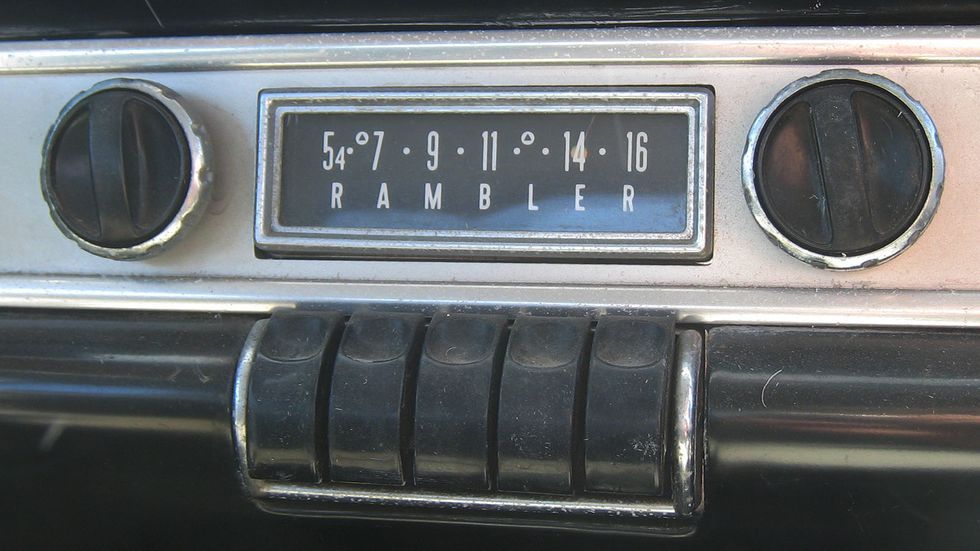Tying up the Hands of Time
March 24, 2022
That’s just the way we’ve always done it.
A simple answer to the simple question, “why do we do this?” But it's too simple. And it's lazy. I ask myself this question twice a year. In March and then again in October. Why are we still changing the time?
This year I went looking for an answer.

Photo Credit: FiveThirtyEight.com
Some give credit for the idea to Benjamin Franklin. Ben invented many things, but messing with the clocks wasn’t one of them. He actually recommended the French alter their sleep habits to save on candles and lamp oil. It was a satirical suggestion based on his belief the French slept too late. Ben was the early to bed, early to rise guy. If Ben made this kind of joke at the expense of the French today, there would be a global outcry for a Twitter apology and the markets would tank because of uncertainty in the US and French trade relationship. The French might hold back some of the aircraft they sell us, and then we might respond by holding back some of their meds.
The original idea of adjusting the clocks from standard time came in 1895 from George Hudson. George was a New Zealand entomologist. He wanted to move the clocks ahead so there would be more time late in the day to collect insects. Hudson presented a paper on his idea to the Wellington Philosophical Society. They didn't like it. Next to have a go at it was a British builder, William Willet. In 1907 Bill suggested the clocks be moved ahead twenty minutes every Sunday in April. His reasoning was it would give people more time for recreation and save on their lighting costs. By recreation, he meant golf. Bill liked to play and wanted more daylight to do it. The clocks would roll back in September. The government ignored Bill's idea, and he joined George in the don’t go messing with our clocks club.
In 1908, a couple of regions in Ontario, Canada, started Daylight Savings Time and moved their clocks ahead an hour. Those crazy Canadians. But DST wasn't introduced across an entire country until Germany and Austria-Hungary did it in 1916. Their reasoning was sounder than catching bugs or working on your chip shot. They were engaged in a bloody World War, and they did it to save fuel. The United States followed in 1918 after we entered the war. We did it to save resources but also wanted to extend the workday. It was an on-again, off-again kind of thing until 1966 when Congress established a consistent process across the country. During the early 1970's we experimented with a permanent DST in response to the energy crisis. Initially, the test was supposed to last two years, but it quickly lost support. People didn't like their kids traveling to school in the dark. After Nixon resigned because of Watergate legislators had to find something else to get rid of. They decided permanent DST had to go and pulled the plug on it before the experiment was over.
Proponents of Daylight Savings Time say there are good reasons for rolling the clocks ahead. Farmers like it, crime rates fall, accidents decline, people shop more, and we save money on energy. But farmers really don’t like it and prefer managing their days by the sun and the seasons instead of a Seiko, studies show what we save on energy costs is minimal and has little impact on conservation, and daylight is no longer an incentive to shop when you don’t have to leave your house to go on a spending spree. There are also solid arguments that crime and accidents aren't clock watchers either. However, there is strong evidence that returning to a permanent standard time would help us live longer. Scientists say moving time ahead an hour increases the number of strokes and heart attacks.
After nearly fifty years of springing forward and falling back, people want it to stop. Two-thirds of Americans agree it needs to change. The only thing this many people have agreed on in recent memory is the final season of How I Met Your Mother sucked, and the McRib should never permanently return to the McDonald’s menu.
The House of Representatives held a hearing the week before we turned the clocks forward this year but didn’t do anything else. Then, the week after the time change, the Senate passed the Sunshine Protection Act in a surprisingly swift move for a deliberative body. This act would make Daylight Savings Time permanent. There's been the usual political badgering about who did what and why, but at least they did something. Even though they opened this can of clock worms with their hearing, the House raised their arms and shouted, "not so fast." They want to give the subject more study. I'm suspicious of their motive. I think it's like when your parents said they needed to think about allowing you to get an iguana, when what they wanted to do was delay making a decision hoping you'd forget about it. The House isn’t so much worried about what people want. It's more worried about what the people who give them money want, and there's a lot of money that changes hands when the clocks change. The recreation, hospitality, and sports industries for starters, and the customer service representatives at the appliance companies who answer the flood of calls and emails twice a year from people trying to change the clocks on their microwaves and stoves. The House also isn’t sure what President Biden wants to do. Other than not taking hard questions from reporters.
I would think the president would want to make people happy by ending the clock shifting. Two months before President Ford ended the DST experiment, he pardoned former President Nixon and told us, "Our long national nightmare is over." President Biden could stand before the cameras with a big smile and similarly announce the end of our long national needless clock-changing nightmare. Whether we stayed on a permanent standard or daylight savings time, we would still have other nightmares. But now we could have them at the same time year-round. I'm not optimistic, though. When one house of Congress springs forward, the other seems to fall back.
That’s just the way we’ve always done it.
Like what you read?
Subscribe to my mailing list and get notifications to your inbox when my next blog post goes live.
Contact Us
More By Joe


